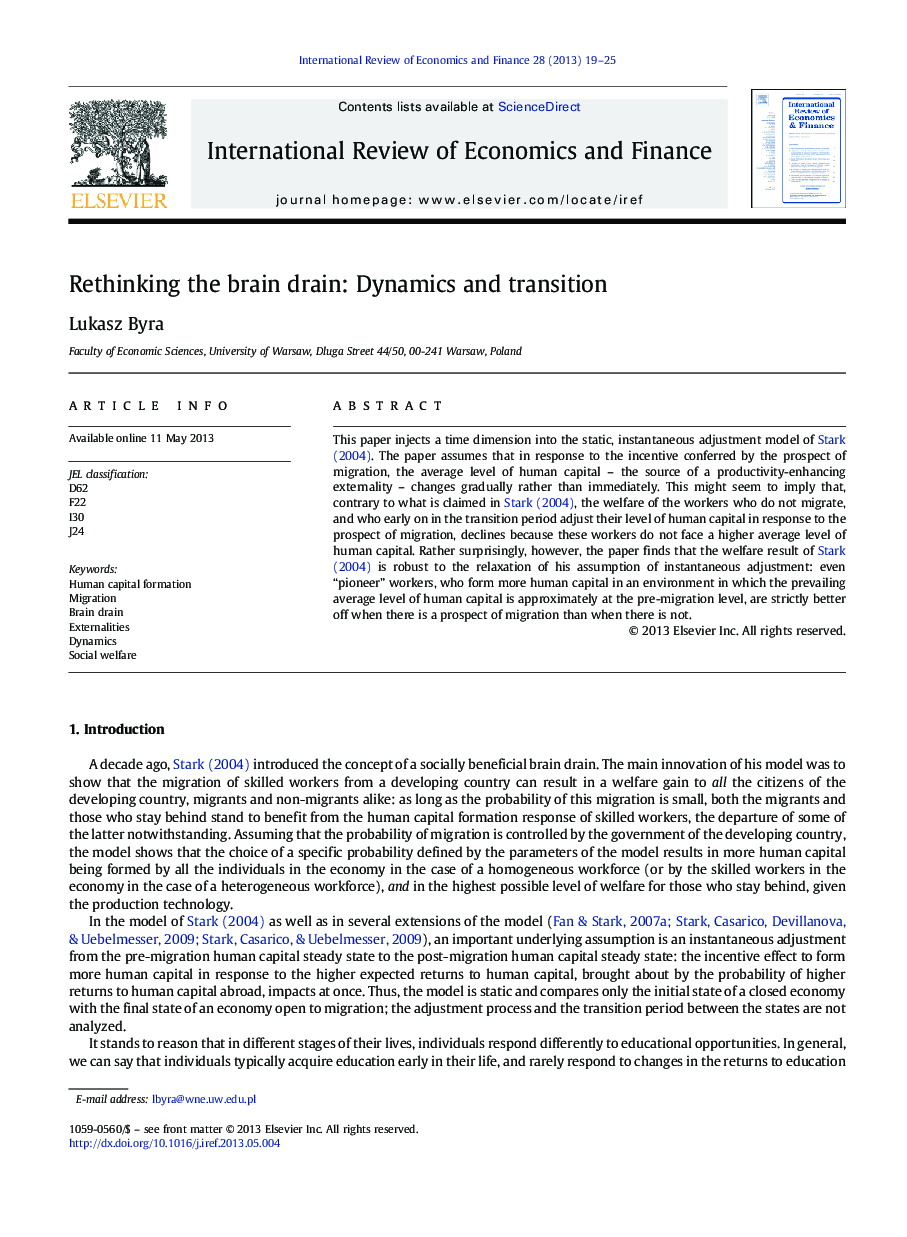| Article ID | Journal | Published Year | Pages | File Type |
|---|---|---|---|---|
| 5083791 | International Review of Economics & Finance | 2013 | 7 Pages |
Abstract
This paper injects a time dimension into the static, instantaneous adjustment model of Stark (2004). The paper assumes that in response to the incentive conferred by the prospect of migration, the average level of human capital - the source of a productivity-enhancing externality - changes gradually rather than immediately. This might seem to imply that, contrary to what is claimed in Stark (2004), the welfare of the workers who do not migrate, and who early on in the transition period adjust their level of human capital in response to the prospect of migration, declines because these workers do not face a higher average level of human capital. Rather surprisingly, however, the paper finds that the welfare result of Stark (2004) is robust to the relaxation of his assumption of instantaneous adjustment: even “pioneer” workers, who form more human capital in an environment in which the prevailing average level of human capital is approximately at the pre-migration level, are strictly better off when there is a prospect of migration than when there is not.
Related Topics
Social Sciences and Humanities
Economics, Econometrics and Finance
Economics and Econometrics
Authors
Lukasz Byra,
